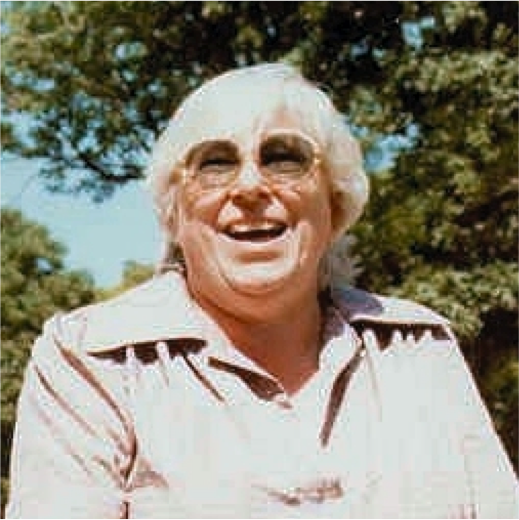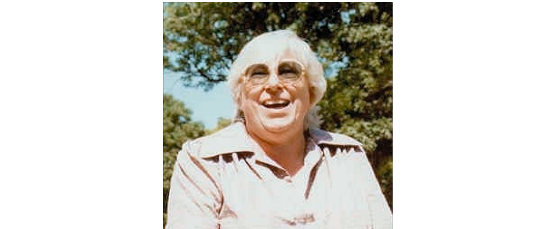by Stephanie Zvan
Cross posted from AlmostDiamonds
With the conversations and reporting of #metoo showing no signs of slowing down, we’re being provided with a trove of information about the reporting of harassment: who is reporting, who isn’t, the social and institutional responses to harassment reports. This all means we’re able to see how serial harassers continue to function over time.
Sometimes, often, the problem is as simple as organizations and individuals with the power to make a difference failing in their responsibilities. At the Weinstein Company, executives helped Harvey Weinstein settle a multitude of harassment claims without taking him out of the position that facilitated that harassment. Outside the company, gossip columnists used him to advance their own careers while keeping his behavior out of the news. NPR News knew about Michael Oreskes behavior his entire tenure but didn’t fire him until it became public.
Several people who’ve come forward have also spoken about experiencing or fearing retaliation as a consequence of speaking up. Unfortunately, retaliation is a reasonable concern. It’s a common experience when reporting harassment in the workplace. An EEOC report suggests an overwhelming majority of those who report face retaliation from their employer or their peers.
Given that kind of response, it absurd to blame targets of harassment for not stopping their harassers from harassing again or even for not coming forward before now. If they stay quiet, they’re merely doing what we’ve trained them to do. The tsunami that is #metoo demonstrates that when conditions change, people are ready to report.
That means that those of us who have and enforce codes of conduct have the power to make harassment claims heard. I don’t mean we need to shout the names of those who cross boundaries from the rooftops. That can get you sued. No, I mean we can make decisions that lower the barriers to reporting. We can make it easier for those who want to speak out about their experiences to talk to us.
How? Well, we can start by remembering that most people don’t do this very often. Someone who’s been targeted for harassment at your event or in your organization has probably never reported harassment before they consider whether they want to report to you. We can and should take steps to make it easier.
The first step is telling them what constitutes harassment. It’s all well and good to disallow harassment in your spaces, but if you only tell people “harassment” is prohibited, there will be miscommunication. This is partly because “harassment” is both a term of art and a word in common, everyday usage.
When we’re talking about employment law, harassment only becomes prohibited when it affects someone’s job, “when it is so frequent or severe that it creates a hostile or offensive work environment or when it results in an adverse employment decision (such as the victim being fired or demoted).” Most of us doing events or running organizations on volunteer labor don’t want to let things get that severe. We start losing attendees and volunteers long before that, because we don’t pay people to put up with nonsense. Sample policies for these spaces list the kinds of behaviors that needlessly push people away so everyone is clear on what’s acceptable and what’s reportable.
The next step is telling people how to report. Unfortunately, we sometimes skip this step, thinking it suffices to say, “Please, tell us”, without telling people how to identify “us”. This can mean that people think they’re reporting when they’re not. From a post by Elise Matthesen on how to report sexual harassment:
Both HR and Legal were in touch with me over the following weeks. HR called and emailed enough times that my husband started calling them “your good friends at HR.” They also followed through on checking with the other people, and did so with a promptness that was good to see.
Although their behavior was professional and respectful, I was stunned when I found out that mine was the first formal report filed there as well. From various discussions in person and online, I knew for certain that I was not the only one to have reported inappropriate behavior by this person to his employer. It turned out that the previous reports had been made confidentially and not through HR and Legal. Therefore my report was the first one, because it was the first one that had ever been formally recorded.
Corporations (and conventions with formal procedures) live and die by the written word. “Records, or it didn’t happen” is how it works, at least as far as doing anything official about it. So here I was, and here we all were, with a situation where this had definitely happened before, but which we had to treat as if it were the first time — because for formal purposes, it was.
Not everyone may want to make a formal report, but a good code of conduct will tell them how.
A complainant who doesn’t want to make a formal report doesn’t let you off the hook, however. While an informal complaint may not, in itself, leave you with enough information to act, that informal complaint is information. You’re still the person responsible for deciding how to proceed, and you can’t un-know something you’ve been told.
Keep records on everything related to code of conduct violations, from what you were told to how you decided to react. It’s institutional memory that will help pass on your values and processes. If and when someone does report formally, it will turn up patterns. If someone is using your event or organization as their personal hunting grounds, you’ll know. Even if no one ever reports formally, you may see a pattern of low-level infractions that makes it worth having a discreet word with someone who continually rides the line of acceptability.
It may also keep you from facing a situation like the one the Center for Inquiry faced when Lawrence Krauss’s long history of misconduct came to light. Though they’d received complaints of an attempted assault and other inappropriate behavior, no formal complaints were filed. The lack of formal processes, however, doesn’t change the fact that their leadership knew about this behavior. They’re rightly under fire for having allowed him opportunities to continue. They’re still responsible for their own behavior even if no victim filed the kind of report that would have “forced” them to act.
Ideally, of course, you do want a formal report. Sometimes, as with attempted assault, you have to act to keep your members and attendees safe. (Sarah Jeong makes a good case that we should do some hard thinking about how much of the responsibility for consequences we put on victims as well. I expect, however, that changing this practice will also require significant work to shift the blame for outcomes off those who report violations.) In cases like this, it helps to have all the information you can get. So how do you get it?
The easiest way is to make reporting as comfortable and easy as possible. Start by building into your processes the understanding that someone filing a report is doing you a favor. Is it disruptive to have to devote resources to taking reports in the middle of an event, or even after you think your event is finished and you can rest? Of course it is. However, it’s even more disruptive for the person who planned to attend, maybe learn something, and have a good time. If they give you that time, you should appreciate and honor it.
Make the process as easy for them as possible. Identify people who can devote the time to taking reports without interruption. Make sure everyone else working or volunteering for you knows how to find those people easily. Train them before you need them. Make sure they understand what information you need and how to balance your needs with the needs of a person reporting a violation.
There are also important things to avoid.
Back at Chi-Fi 0 in Chicago, I was on a panel discussing anti-harassment policies and I told the audience that if the methods a con or event has for dealing with harassment create more anxiety for the victim than the actual incident of harassment, you’re doing something wrong. At the time, I said this referring to an incident that happened to me a couple years ago at TAM where the security hired by the event pressured me into reporting a minor harassment incident, took me into a storage closet and questioned me about the incident until I cried, then told me I couldn’t tell anyone about them or their questioning. It all seemed suspiciously like an overreaction meant to protect the event organizers rather than the attendees. You can have the most well-written anti-harassment policy of any con ever, but if a harassment incident is reported to you and you conveniently ignore it to avoid dealing with the fallout or if you make the response to a report so traumatic for the victim that making a report is just not worth it, then your well-written anti-harassment policy is insufficient.

TAM replaced their code of conduct that year with a policy (unwritten) that event or hotel security would handle any complaints. That’s a great idea if you want to replicate the conditions that lead so few people to report being raped. It’s not a terrible idea if you want to look like HR, complete with the threat of retaliation. It’s very, very bad, however, if your goal isn’t keeping people with complaints as far away from you as possible.
You want this information. That means you want to make people comfortable when they report. You don’t want to make reporting more intimidating than putting up with the behavior being reported. You certainly don’t want to make it more intimidating than just walking away from all association with you.
This is why it’s critical to talk about reporting in your code of conduct. That’s your main mechanism for communicating everything you have to say about harassment and how you’ll deal with it. That’s where people will look when they decide whether to report.
What should be in your code of conduct? At a minimum:
- Your desire to hear about bad experiences. This seems like it should be a given, particularly when you do want to hear the bad news, but not everyone does. Make it clear what you want.
- At least a brief description of what happens when you report. You can include more online if you wish, but help people visualize how their experience will go.
- What you’re prepared to do for those who report. Maybe someone needs a quiet place and a glass of water after a bad experience. Maybe they need to feel safe until a friend can show up. Maybe they need a rape crisis line. What can you help with?
- What the range of responses to a report may be. As long as targets of harassment are held responsible for what happens to the people they report, they need to know this to make informed decisions. If you’re committed to “zero tolerance” (not a best practice), you should say so.
- The fact that decisions on consequences may not be up to the reporter. In a world where “Listen to the victims” is a mantra, we can forget that we may have to put other people’s safety first sometimes. Make that explicit.
None of those have to be long essays, though some codes of conduct do devote a lot of space to them. But they should be there to lower the barriers to reporting misconduct. Doing that will help us all deal with harassment as it happens instead of allowing it to quietly go on for decades the way it has.







